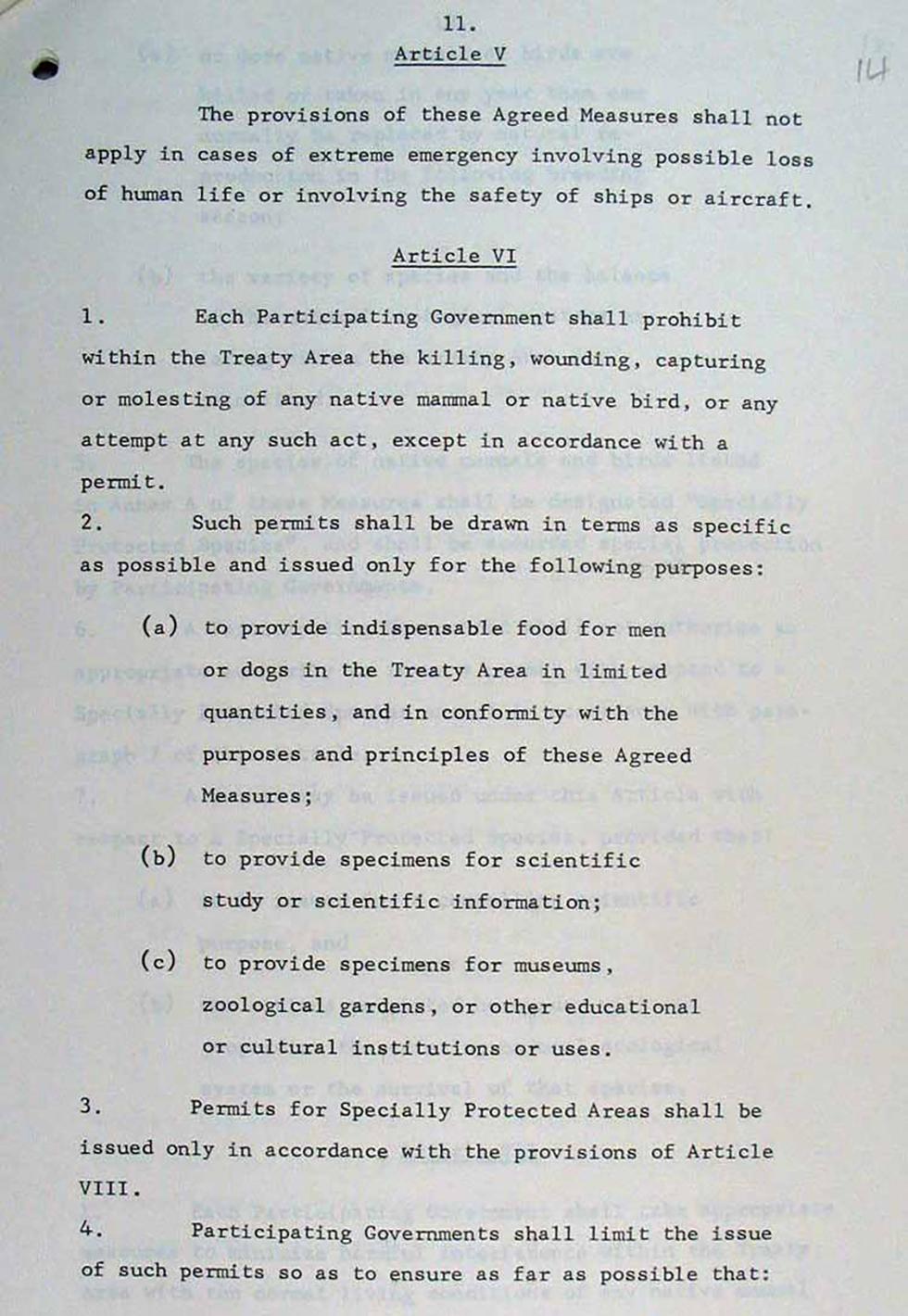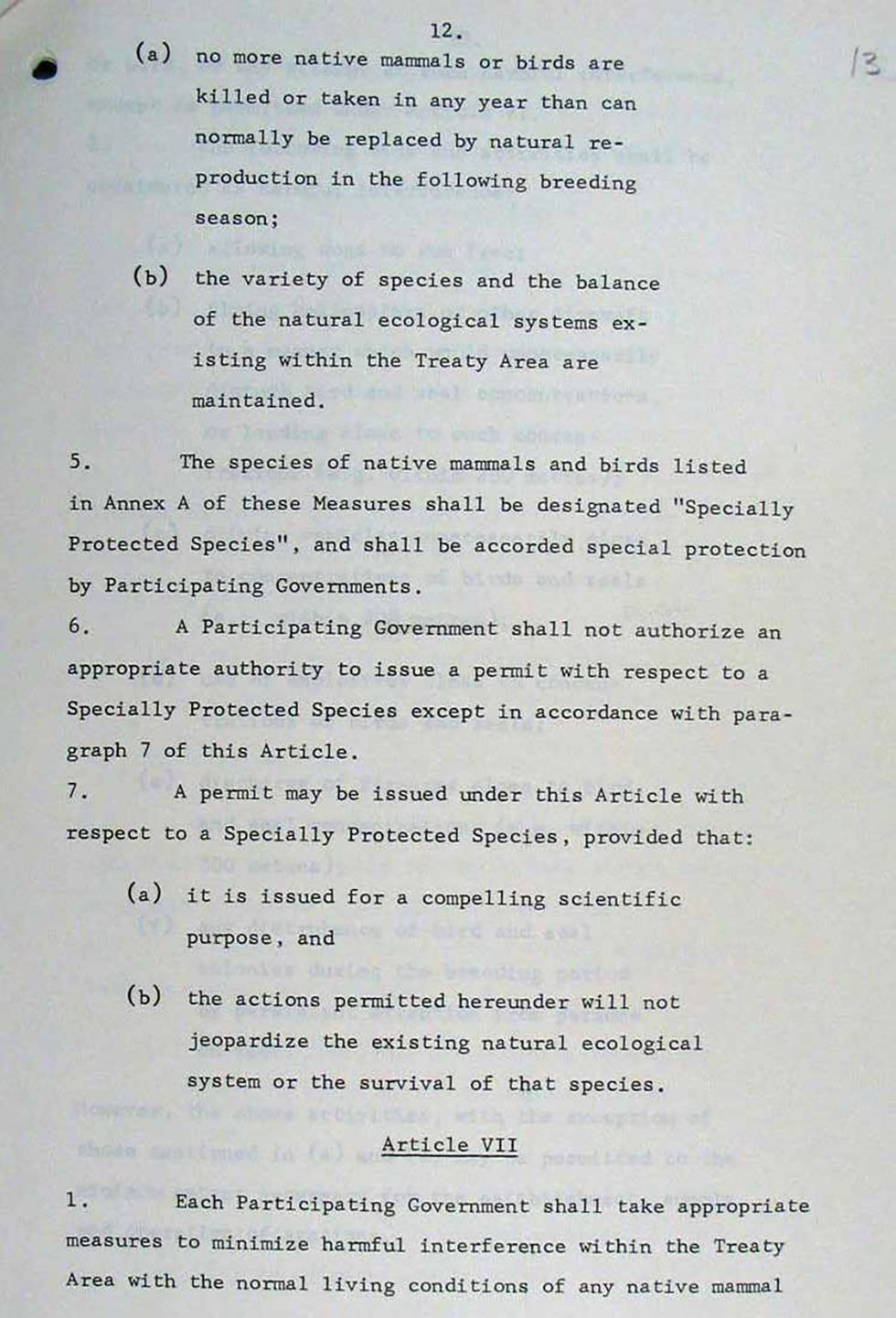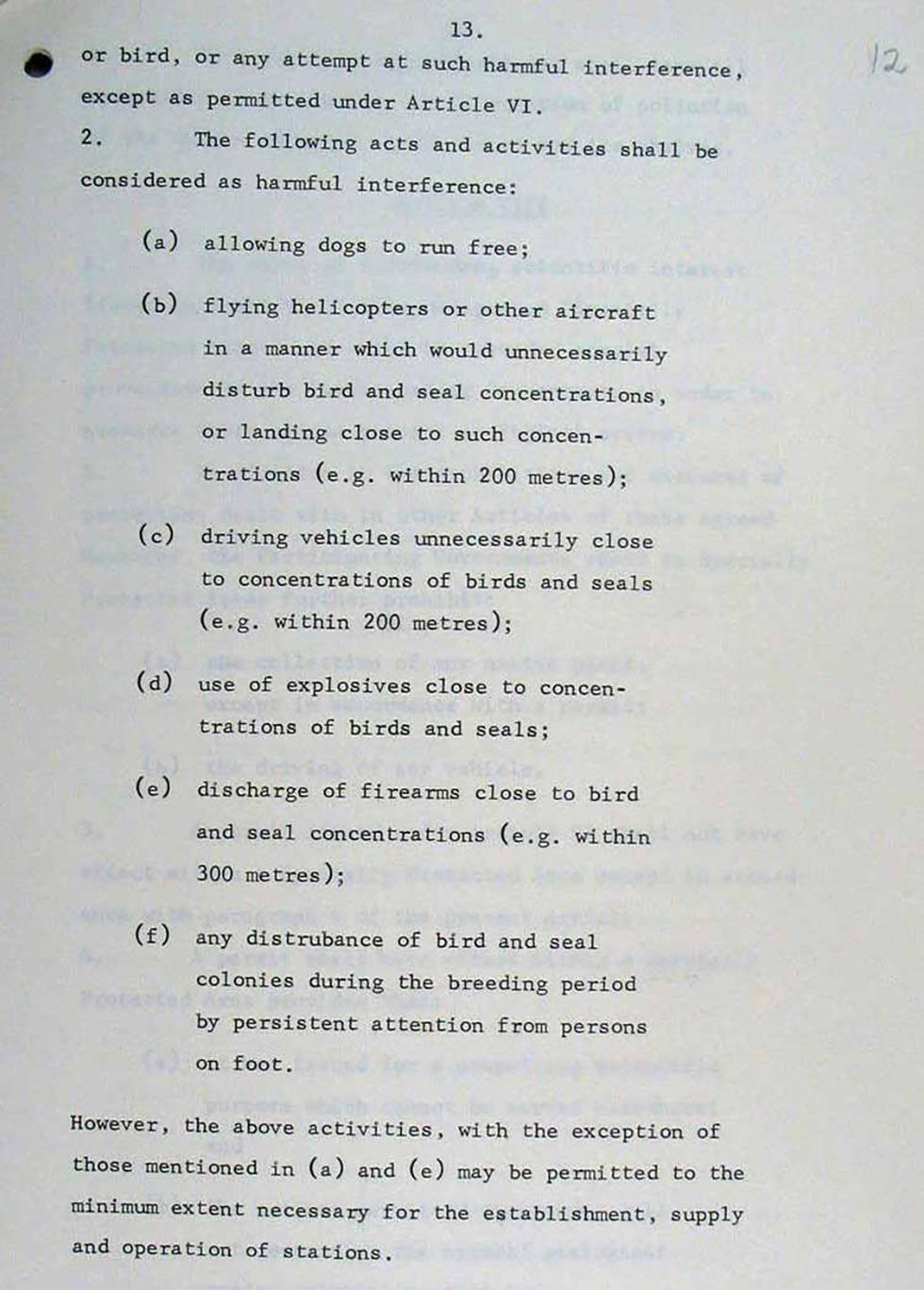
Excerpt from Cabinet submission number 575, 1972

Excerpt from Cabinet submission number 575, 1972

Excerpt from Cabinet submission number 575, 1972
Aboriginal and Torres Strait Islander people should be aware that the National Archives' website and collection contain the names, images and voices of people who have died.
Some records include terms and views that are not appropriate today. They reflect the period in which they were created and are not the views of the National Archives.


Excerpt from Cabinet submission number 575, 1972

Excerpt from Cabinet submission number 575, 1972

Excerpt from Cabinet submission number 575, 1972
[Page 1 of excerpt, numbered] 11.
[Underlined subheading:] Article V
The provisions of these Agreed Measures shall not apply in cases of extreme emergency involving possible loss of human life or involving the safety of ships or aircraft.
[Underlined subheading:] Article VI
1. Each Participating Government shall prohibit within the Treaty Area the killing, wounding, capturing or molesting of any native mammal or native bird or any attempt at any such act, except in accordance with a permit.
2. Such permits shall be drawn in terms as specific as possible and issued only for the following purposes:
(a) to provide indispensable food for men or dogs in the Treaty Area in limited quantities, and in conformity with the purposes and principles of these Agreed Measures;
(b) to provide specimens for scientific study or scientific information;
(c) to provide specimens for museums, zoological gardens, or other educational or cultural institutions or uses.
3. Permits for Specially Protected Areas shall be issued only in accordance with the provisions of Article VIII.
4. Participating Governments shall limit the issue of such permits so as to ensure as far as possible that:
[Page 2, numbered] 12.
(a) no more native mammals or birds are killed or taken in any year that can normally be replaced by natural reproduction in the following breeding season;
(b) the variety of species and the balance of the natural ecological systems existing within the Treaty Area are maintained.
5. The species of native mammals and birds listed in Annex A of these Measures shall be designated "Specially Protected Species", and shall be accorded special protection by Participating Governments.
6. A Participating Government shall not authorize an appropriate authority to issue a permit with respect to a Specially Protected Species except in accordance with paragraph 7 of this Article.
7. A permit may be issued under this Article with respect to a Specially Protected Species, provided that:
(a) it is issued for a compelling scientific purpose, and
(b) the actions permitted hereunder will not jeopardize the existing natural ecological system or the survival of that species.
[Underlined heading:] Article VII
1. Each Participating Government shall take appropriate measures to minimize harmful interference within the Treaty Area with the normal living conditions of any native mammal
[Page 3, numbered] 13.
or bird, or any attempt at such harmful interference, except as permitted under Article VI.
2. The following acts and activities shall be considered as harmful interference:
(a) allowing dogs to run free;
(b) flying helicopters or other aircraft in a manner which would unnecessarily disturb bird and seal concentrations, or landing close to such concentrations (e.g. within 200 metres);
(c) driving vehicles unnecessarily close to concentrations of birds and seals (e.g. within 200 metres);
(d) use of explosives close to concentrations of birds and seals;
(e) discharge of firearms close to bird and seal concentrations (e.g. within 300 metres);
(f) any distrubance [sic] of bird and seal colonies during the breeding period by persistent attention from persons on foot.
However, the above activities, with the exception of those mentioned in (a) and (e) may be permitted to the minimum extent necessary for the establishment, supply and operation of stations.
Excerpt from Cabinet submission number 575, 1972. This Cabinet submission was replaced by another – Submission 632, on which the decision (1052) to introduce legislation was based.
Learn how to interpret primary sources, use our collection and more.
